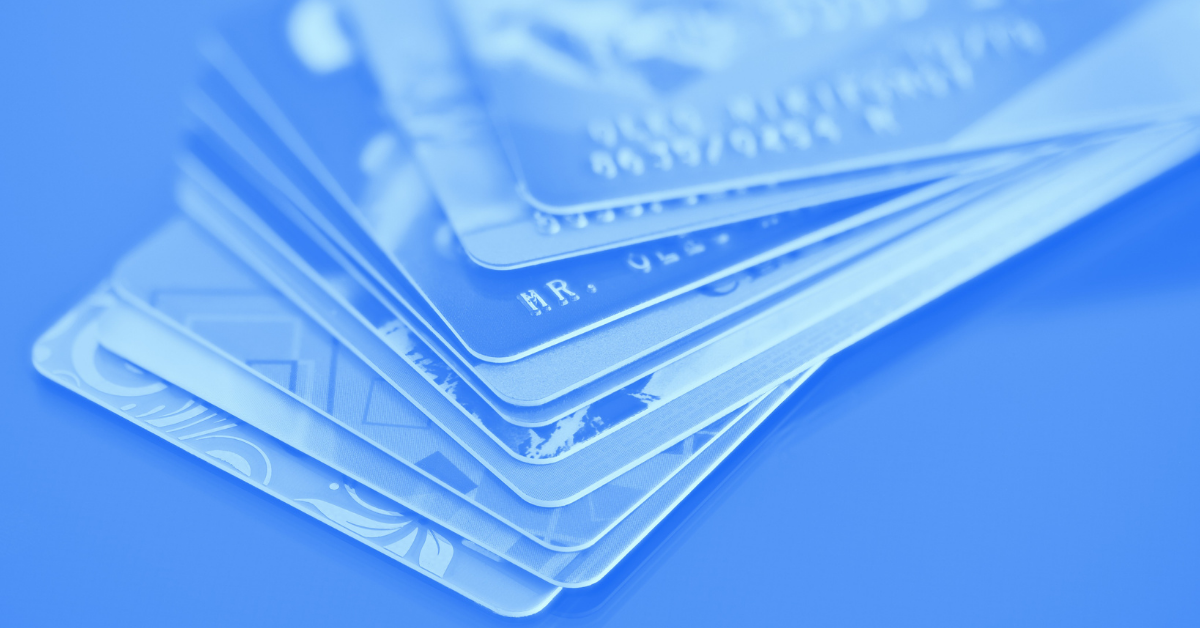As Much as Millennials May Hate It, We Kind of Need Credit
Share this

*Estimated Read Time: 3 Minutes
According to survey from Bankrate, 63 percent of millennials don't have a credit card. This in an interesting statistic to be sure, but there’s a little bit more to it than meets the eye. It’s not just that we don’t have credit cards, you might actually say we’re adverse to them. As is the case with many of the industries we’ve been accused of “killing,” experts have been left scratching their heads as to why we’re bucking the system they so carefully put in place — even though the answer is fairly obvious.
The increase in student loans over the past decade has left a large number of millennials in horrific debt — and they’re not exactly keen on racking more up. In fact, a Facebook study from 2016 that reported 46 percent of millennials believe that financial success means being debt free. What’s more, many of us came of age during the Great Recession, where we saw first-hand the heartbreaking consequences of uncontrolled debt. We watched as our families and friends lost their homes, jobs, and savings thanks to predatory lending practices, and then as the people responsible for this travesty walked away scot-free. Can you really blame us for avoiding credit cards?
Unfortunately, by opting out of credit cards we may have a harder time building credit and establishing a credit history — and this is where we get into trouble.
Why Do We Need Credit?
I think we can all agree that debt sucks. Eschewing the use of credit cards clearly helps us avoid debt in the short term. But what about the long-term risks? Well, without a credit card, your credit history will be limited. Since both automotive and mortgage lenders rely heavily on your credit history to assess your worthiness as a borrower, you will likely struggle to get approved for such loans without a cosigner.
Competitive rate for home and car loans aside, a good credit score also helps you secure the best deals on insurance, qualify for renting an apartment, pass a credit check for employment, and sometimes even allow you to forgo a deposit with utility providers. Credit cards themselves come with an array benefits, such as fraud protection, extended warranties, vacation insurance and worthwhile rewards programs. These are clearly an enormous advantage when we’re already counting every penny as it is.
Can We Survive Without Credit?
Of course, people do it all the time! However, there are a few disadvantages to living without credit. With little or no credit history, you’ll look riskier to lenders and any loans you’re offered are likely to come with much higher interest rates. You may have to pay larger deposits when renting a car or apartment. When it comes to being lent money of any kind, you’ll have to jump through a lot more hoops than you would if you had a solid credit history.
On the upside, if more millennials decide to forgo credit altogether, it could lead to some positive changes to our severely outdated credit-scoring system. A large scale renunciation of traditional credit sources, like cards, might force the bureaus and lenders to start considering alternative data to determine a customer's creditworthiness.
How Can I Build Credit Without Putting Myself Further Into Debt?
If you are interested in building your credit history — but unwilling to put yourself into debt to do so — you’ll be glad to know that there are a couple of options out there that can do one without the doing the other.
- Secured Credit Card: A secured credit card is backed by a cash deposit you make when you open the account. For the most part, the deposit is equal to your credit limit. For example, if you deposit $500 into the account, you’ll have a $500 limit. Since the credit card is secured by your deposit, it reduces the risk to the lender — meaning you can get the card even with little to no credit history! However, there are some downsides to secured credit cards, so be sure to do your research before signing up.
- Credit-Builder Loan: These low-interest loans are offered by credit unions and banks to help people improve their credit. You borrow a small amount (usually less than $1,000) and make payments for 12 to 24 months. The payments are deposited into savings account and reported to the credit bureaus. Once the repayment term is up — and you’ve paid in full — you’re allowed to withdraw the money from the account!
Ultimately, whether you choose to use credit or not is up to you. As with all things, there are pros and cons to each choice, and you must weigh them appropriately. If you do go the way of credit, and get an unsecured card, be sure to pay at least the minimum balance on time every month. Otherwise, you’ll only end up hurting your credit score and digging yourself deeper into debt. And damn it, debt sucks.
 About the Author:
About the Author:
Liz Greene is a makeup loving, dog hugging, anxiety-ridden realist from the gorgeous City of Trees, Boise, Idaho. You can follow her on Twitter @LizVGreene or catch her latest misadventures on her blog, Instant Lo.
Share this
- Good Financial Reads (923)
- Financial Education & Resources (892)
- Lifestyle, Family, & Personal Finance (865)
- Market Trends (114)
- Investment Management (109)
- Bookkeeping (55)
- Employee Engagement (32)
- Business Development (31)
- Entrepreneurship (29)
- Financial Advisors (29)
- Client Services (17)
- Journey Makers (17)
- Fee-only advisor (12)
- Technology (8)
Subscribe by email
You May Also Like
These Related Stories

Why I Don't Own a Credit Card

A Millennial's Guide to Building Credit

